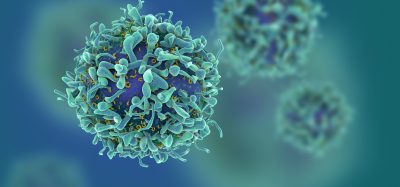Researchers highlight link between microbiome and melanoma
Posted: 4 February 2020 | Victoria Rees (Drug Target Review) | No comments yet
A study of published papers has revealed the importance of research into how the microbiome affects the development of melanoma.

New findings have strengthened the implication of the microbiome in the development of melanoma as well as the toxicity and response to cancer treatment in patients.
Conducted by Elsevier, the research shows that in 2018, two of the three most cited research papers mentioning melanoma in the title, abstract or keywords explore the influence of the microbiome in response to melanoma patients, with over 700 citations.
…within the small molecules and targets pipeline there is an increased focus on targeted therapeutics”
“Our report finds more research should be done in positively influencing the microbiome in melanoma patients – as it has the potential to dramatically affect treatment plans and outcomes for patients. We are also hearing from all customers that microbiome research will explode in 2020 and is a big focus across all disease areas, including dementia related studies and the increase in studies mentioning the microbiome bears out this prediction,” said Tim Hoctor, Vice President of Life Science Solutions at Elsevier.
Further findings show that within the small molecules and targets pipeline there is an increased focus on targeted therapeutics towards patients with specific melanoma gene mutations, echoing the industry trend towards the development of precision medicines.
According to the report, there has been a large expansion of melanoma research over the last decade, including the increasing volume of studies on the BRAF kinase and PD1 immune checkpoint.
“As noted in the report, there has been an explosion of knowledge about melanoma with an ever-increasing list of protein targets. Also noted, the role of the microbiome in melanoma and in response to immunotherapy is of increasing interest in the field,” said Dr Marc Hurlbert, Chief Science Officer, Melanoma Research Alliance.
“The findings show there is opportunity for further study into the 11 genes genetically linked to melanoma with no reported genetic variants, which could point to potential gaps in our knowledge,” said Tom Williams, lead report author and Life Sciences Professional Services Project Manager at Elsevier. “The Elsevier Professional Services team… now to develop further reports to support R&D efforts in other areas, particularly around the protein targets involved in specific diseases, the microbiome and rare diseases.”
Related topics
Drug Targets, Microbiome, Oncology, Research & Development
Related conditions
Melanoma
Related organisations
Elsevier, Melanoma Research Alliance
Related people
Dr Marc Hurlbert, Tim Hoctor, Tom Williams







